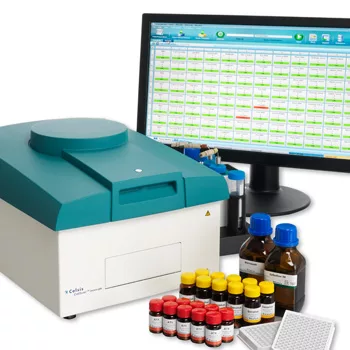Lean Quality for Lean Manufacturing

A critical component of product quality, microbial control methods have a tremendous impact on product release, and thus, time to market. Lean microbial control can boost a manufacturer’s bottom line with lower operational costs. New rapid microbial methods (RMM) have revolutionized the way manufacturers confirm product quality, drastically reducing the time-to-result and hence, time to market. Lean quality is a substantial improvement over traditional microbial screening methods that use slow, subjective plating methods to confirm the presence or absence of contamination in a product. While sound, such methods are based on technology developed over 100 years ago. Today, manufacturers have become savvy to the many benefits afforded by RMM, the most important of which is overall lower operational costs and a better bottom line. Rapid methods produce fast microbial results, which in turn shortens production cycles and speeds time to market, while confirming product quality.
Lean Quality Reduces Waste, Generates Savings and Improves Risk Management
Much like other lean manufacturing processes, lean quality aims to improve an organization’s bottom line by achieving greater efficiency, less waste and notable cost savings. Fast microbial screening results reduce inventory requirements in two ways. Without having to wait days for quality confirmation, manufacturers have less product on micro hold. And when contamination is detected quickly, companies can respond immediately, minimizing the impact. Thus, less safety stock is needed to recover from the unforeseen events that disrupt their supply chain. The reduced inventory achieved frees up working capital and warehouse space needed for storage. Eliminating days from the production cycle makes manufacturers increasingly nimble to respond to customer demand. The lean approach of RMM creates an efficient and responsive supply chain, which improves the overall financial health of the facility. The rewards are significant. In many cases, a single plant can realize savings of over $500,000 in the first five years of implementing RMM.
Lakeland Dairies and Celsis® RMM: A Success Story
The Celsis Innovate™ rapid detection system from Charles River is widely used across the global dairy and beverage industry. Lakeland Dairies, an industry-leading co-op that produces more than one billion liters of milk annually, was one of the early adopters of Celsis RMM. With operations across Northern Ireland, Lakeland Dairies has a comprehensive portfolio of 170 dairy products, catering to domestic and international markets. Their drive to achieve lean manufacturing and product quality across a global distribution led them to select Celsis RMM for their microbial screening.
Prior to implementing Celsis, Lakeland Dairies tested their products for microbial contamination using a pH test, a method that took 5 days. Used for many UHT aseptic and ESL package products, pH testing lacks the accuracy, dependability and speed of rapid methods. In fact, studies performed by Celsis discovered a substantial disagreement between pH test results and those obtained by traditional plating methods, versus the consistent agreement found between Celsis rapid methods and plating. This discrepancy exists because not all organisms cause a pH shift as they grow and so may not be detected. Slower-growing organisms likewise may not be detected in time to prevent the negative impact of a contamination event.
By contrast, Celsis methods achieve the accuracy of traditional plating methods with a vastly reduced time to results. Utilizing the light-generating reaction of ATP bioluminescence–the same reaction that causes a firefly to glow in the dark– the Celsis Innovate™ detects the ATP molecules that are part of the energy metabolism of all living organisms, including bacteria. If there is microbial ATP present, the instrument will detect the light produced by the reaction and indicate that the sample is contaminated, even when less than 10 CFU is present.
Although they evaluated other RMM prior to implementing a rapid detection system, Lakeland Dairies ultimately chose Celsis for its ability to “produce more accurate data, leading to a better product and production cycle,” explains Sean McInerney, Quality Manager at Lakeland Dairies. Additionally, he says the Innovate™ system is “easier to use than other RMM.” The Celsis system also offers valuable features like a robust database and remote user access from any computer connected to the local network. All of these benefits have brought significant operational efficiencies to Lakeland Dairies’ global manufacturing operations and distribution.
Lean quality has allowed Lakeland Dairies to save millions through reduced inventory requirements and freed working capital. While there are other RMM on the market, the Celsis rapid detection system offers the most reliable results with easy-to-use data management that can be broadly accessed outside of the lab. With the Celsis product line and a passion for innovation, Charles River is helping drive new technologies for the RMM industry, and promises to continue being the method of choice for dairy and beverage manufacturers looking for a fast and reliable confirmation of product sterility.
To learn more about how Lakeland Dairies implemented a lean quality program with Celsis, visit www.criver.com/lakeland.
Looking for quick answers on food safety topics?
Try Ask FSM, our new smart AI search tool.
Ask FSM →







.webp?t=1721343192)
